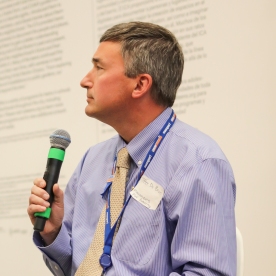Sept 12, 2019, Kannan Thiruvengadam
A panel discussion on getting to action regarding the various climate initiatives of the City of Boston was held at the ICA Watershed. City officials, community leaders, and community members discussed the plans’ efficacy in design, effectiveness on the ground, and equity.
Panelists:
- Chris Cook, Chief of Energy, Environment, and Open Spaces, City of Boston
- Joe Christo, Senior Resilience and Waterfront Planner, Climate Change and Environmental Planning, BPDA
- Melinda Vega, Community Building and Environment Coordinator, Neighborhood of Affordable Housing
- Gabriela Ramirez spoke on behalf of NOAH Youth Organizers about NOAH’s tree canopy program
- Professor Marcos Luna, GIS, Salem State University
- Peter DeBruin, Climate Mitigation & Resiliency Manager, Massachusetts Port Authority
- Frank O’Brien, Allandale Foundation
- Steve Holt, East Boston Flood Plain resident
- Joe Rossi, Executive Director, Mass Coastal Coalition
- Magdalena Ayed, Executive Director, Harborkeepers
- John Walkey, Waterfront Coordinator, Greenroots
Moderator:
Kannan Thiruvengadam
Photos:
Rudi Seitz (contact rudi@rudiseitz.com for permission to use any of the pictures)
Music:
Omar Sosa
Recording:
Chris Marchi (https://www.facebook.com/chris.marchi.75/videos/2267595393368572/)
Salient points made by panelists (paraphrased):
- Given that Boston’s waterfront neighborhoods experienced 2 significant flooding events in 2018, adaptation is urgent. The city’s plans are not being implemented fast enough. Boston is not climate ready.
- Flood Resiliency Zoning Overlay planning is currently underway. A draft plan is imminent. It is not about which locations are too risky to build in — it is about how high to raise your building and where to put your mechanicals. (The Local Wetlands Ordinance, however, would restrict activities, including building, in wetlands and in the surrounding buffers.)
- NOAH’s work in East Boston involves a larger geographical scope than the city’s Climate Ready East Boston; and engages Spanish-speaking folks and youth. The tree planting plans still have a long way to go, in order to achieve tree canopy coverage in East Boston that is on par with the rest of the city.
- The city’s plans as they are neither address all consequences of climate change nor cover all people — especially the most vulnerable.
- Sea level rise forecast is a range — the city uses a specific value from that range; current infrastructure does not have the capacity to handle inland flooding; the plans do not address increasing heat.
- The elderly and the low-income folks are most affected by heat and flooding. Also, the adults of tomorrow — the youth of today — who will be living in the neighborhood are also disproportionately affected by climate consequences, as flooding becomes more chronic.
- Massport cannot serve as shelter to East Boston residents in case of an emergency because it is likely to have its hands full with sheltering stranded airline passengers.
- An English-speaking, well-educated, 10-plus-year resident of East Boston with 2 young children in the FEMA flood plain does not feel that he is well-informed about the city’s climate adaptation plans despite 2018’s eye-opening floods. (Takeway: Families can benefit from planners meeting them in person in their living room and discussing both the urgency and the steps that can/should be taken now to ensure safety.)
- FEMA flood plains do not take climate change forecast into consideration. (This means we are underestimating our risk: there are households not required to have insurance but are at risk of flooding.) Flood insurance premiums are increasing significantly every year. Only 2% of MA households have flood insurance.
- The people likely to be most affected by climate consequences in the neighborhood are least informed about the city’s adaptation plans.
- Developers must hire architects who speak the native language of the people who are often left out of the engagement process. In East Boston, that would mean hiring latino architects. (Such an approach would also help address economic inequities)
City Plans/Visions/Ordinances (climate-related):
Local Wetlands Ordinance (has not been passed yet; the mayor’s office has suggested amendments since the council hearing)
Carbon Free Boston (not included in this panel discussion)
Zero Waste Boston (not included in this panel discussion)

















![ClimateConversation9-13-2019-4 "[City of Boston] Climate plans neither cover all impacts of climate change, nor cover the most vulnerable." Professor Marcos Luna](https://whatsupeastie.files.wordpress.com/2019/09/climateconversation9-13-2019-4.jpg?w=556&resize=556%2C556&h=556#038;h=556&crop=1)

